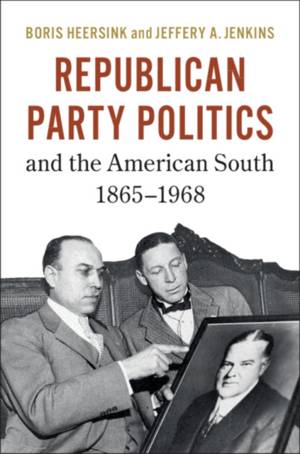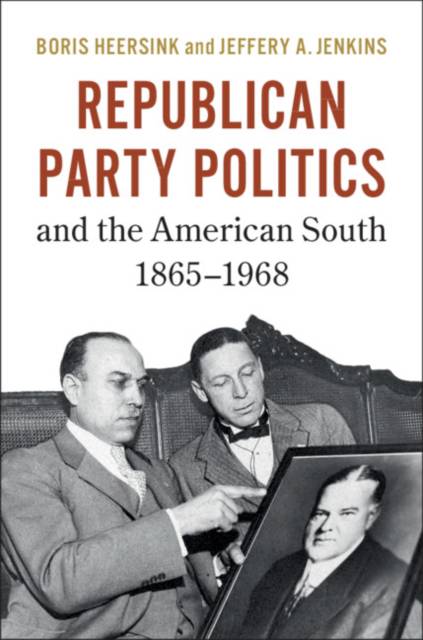
Je cadeautjes zeker op tijd in huis hebben voor de feestdagen? Kom langs in onze winkels en vind het perfecte geschenk!
- Afhalen na 1 uur in een winkel met voorraad
- Gratis thuislevering in België vanaf € 30
- Ruim aanbod met 7 miljoen producten
Je cadeautjes zeker op tijd in huis hebben voor de feestdagen? Kom langs in onze winkels en vind het perfecte geschenk!
- Afhalen na 1 uur in een winkel met voorraad
- Gratis thuislevering in België vanaf € 30
- Ruim aanbod met 7 miljoen producten
Zoeken
Republican Party Politics and the American South, 1865-1968
Boris Heersink, Jeffery A Jenkins
Hardcover | Engels
€ 178,95
+ 357 punten
Uitvoering
Omschrijving
In Republican Party Politics and the American South, 1865-1968, Heersink and Jenkins examine how National Convention politics allowed the South to remain important to the Republican Party after Reconstruction, and trace how Republican organizations in the South changed from biracial coalitions to mostly all-white ones over time. Little research exists on the GOP in the South after Reconstruction and before the 1960s. Republican Party Politics and the American South, 1865-1968 helps fill this knowledge gap. Using data on the race of Republican convention delegates from 1868 to 1952, the authors explore how the 'whitening' of the Republican Party affected its vote totals in the South. Once states passed laws to disenfranchise blacks during the Jim Crow era, the Republican Party in the South performed better electorally the whiter it became. These results are important for understanding how the GOP emerged as a competitive, and ultimately dominant, electoral party in the late-twentieth century South.
Specificaties
Betrokkenen
- Auteur(s):
- Uitgeverij:
Inhoud
- Aantal bladzijden:
- 376
- Taal:
- Engels
Eigenschappen
- Productcode (EAN):
- 9781107158436
- Verschijningsdatum:
- 19/03/2020
- Uitvoering:
- Hardcover
- Formaat:
- Genaaid
- Afmetingen:
- 163 mm x 231 mm
- Gewicht:
- 635 g

Alleen bij Standaard Boekhandel
+ 357 punten op je klantenkaart van Standaard Boekhandel
Beoordelingen
We publiceren alleen reviews die voldoen aan de voorwaarden voor reviews. Bekijk onze voorwaarden voor reviews.









